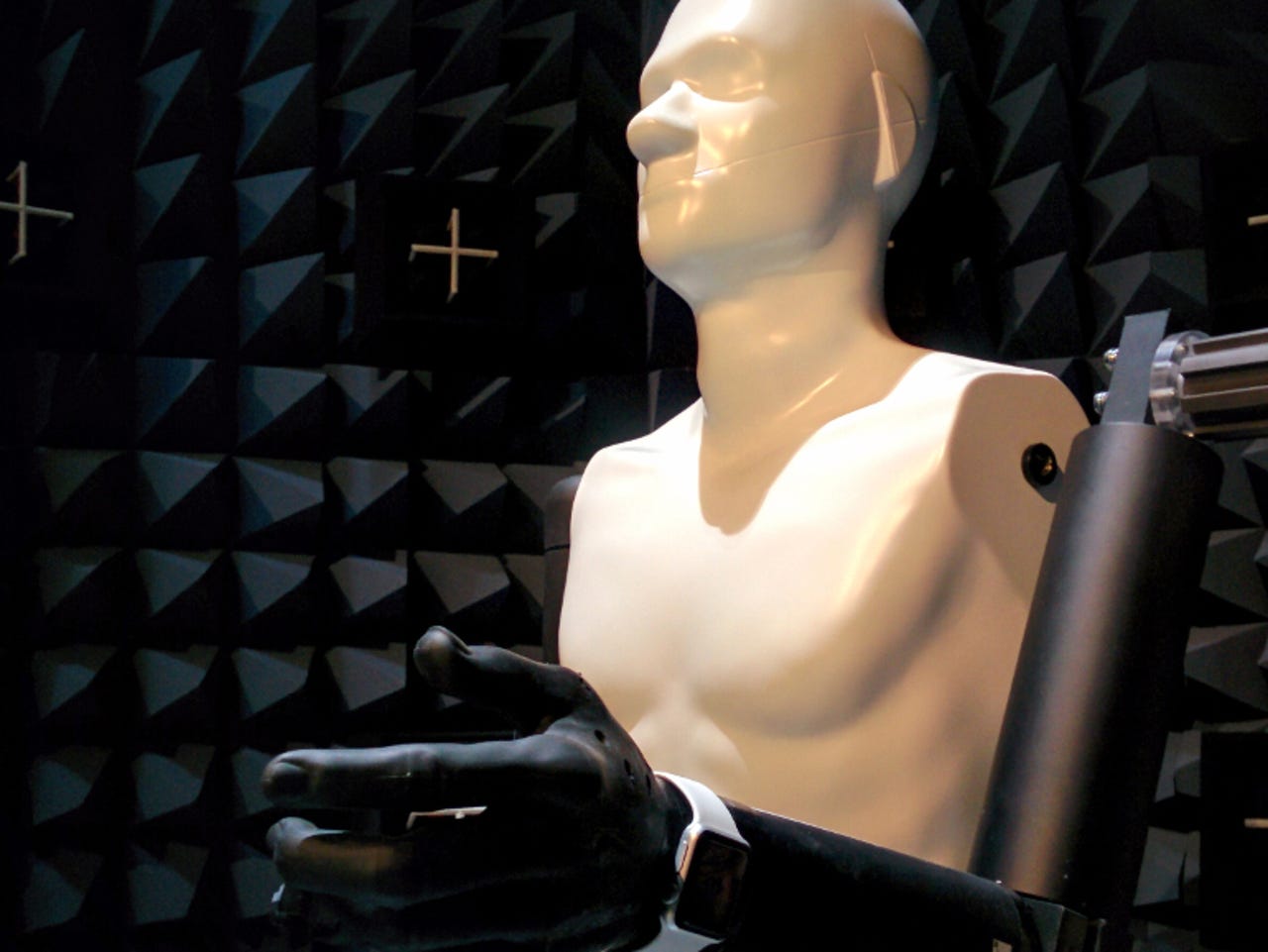Keep on running: This startup can test GPS sport watches without breaking a sweat


Verkotan's GPS testing chamber is equipped with Speag AG's anatomical human 'phantom'.
With wearable tech and fitness trackers becoming an everyday commodity, GPS is embedded into a growing number of devices. But these trackers don't end up on our wrists without extensive testing.
Often, that process involves trials in a variety of field conditions, and often it can mean running a route over and over again to see how the GPS performs.
Now a new testing system aims to make the process less sweaty and time- consuming by creating those same environments in a laboratory.
Developed by Finnish wireless testing startup Verkotan in a research project with the VTT Technical Research Centre of Finland and University of Oulu's Centre of Wireless Communications (CWC), the test system enables full 'GPS air performance testing' of the chipset, mechanics, and antenna.
"Field tests can take days or weeks. We bring the real-life radio environment of, for example, a running route to the laboratory," explains Kari Komonen, CEO at Verkotan.
"In the laboratory, the radio environment stays always the same, which means testing is reliable and can be repeated. In a field-test environment the conditions change all the time."
To achieve create the right laboratory environment, Verkotan has repurposed one of its four over-the-air (OTA) mobile-equipment test chambers for dedicated GPS testing.
The chamber is equipped with Speag AG's anatomical human 'phantom', which has movable hands and forearms to mimic movement as well as the signal absorption, shadowing, and scattering effect of the human body.
Virtual GPS satellites are then used to simulate any required radio environment in the laboratory, such as a forest jogging path in Finland or a busy high street in London. This process includes emulating the possible effect of obstacles, such as trees and buildings, on the GPS signal.
The GPS propagation channel model, which includes a measurement system for signal behavior in different environments, has been developed by CWC.
Verkotan says being able to create realistic radio environments in a laboratory can bring down time spent on GPS testing to single day. For a manufacturer of sport watches or other wearables, that time-saving can mean faster build and release times, because any issues are spotted quickly and tweaked.
"It's not quite 100 percent the same [as the real environment], but it's, so close it can be used to make design decisions," Komonen says.
He acknowledges rival companies, such as Spirent, already sell GPS-testing equipment, but he argues these are high-cost investments for companies to make. In contrast, Verkotan says his is the only company to offer full GPS air testing as a commercial service, making it an appealing option for small and medium-sized manufacturers.
Verkotan was founded in late 2014, but its six founders have deep roots in wireless testing from their backgrounds at Nokia and Microsoft. In fact, the Oulu-based startup bought its mobile equipment testing laboratories from Microsoft after the company closed down its R&D unit in the city.
In the subsequent two years, Verkotan has been able to establish its tailored wireless performance testing and OTA-certification testing services in Finland. But now the company believes GPS testing will become another key business area for international expansion.
"The need for location services is only going to grow across the globe," Komonen says.